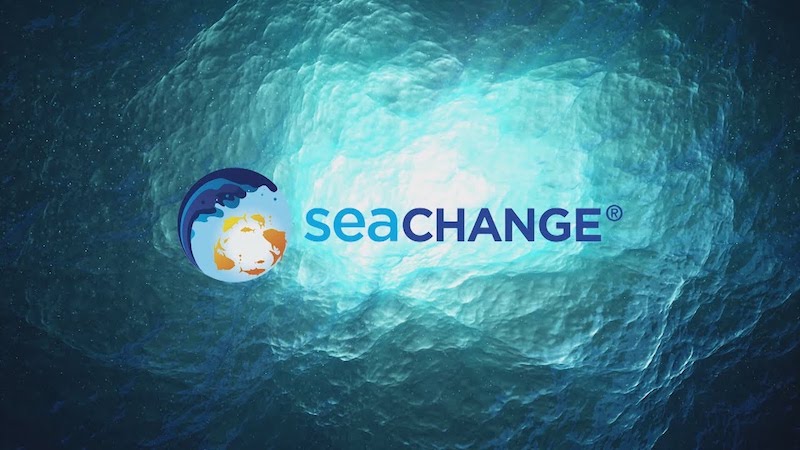
Global seafood producer Thai Union Group has been doing corporate responsibility reporting for some time. It shows its dedication to sustainability and ethical sourcing. Thai Union Group launched its sustainability strategy, SeaChange® in 2014. This shows the company’s determination to lead the seafood industry with the highest level of trust. Hence, it has since put in place a number of projects and programs to encourage sustainability throughout its supply chain.
Thai Union Group's sustainability reporting is one method the company expresses its dedication to sustainability. Since 2014, the company has started releasing annual sustainability reports. There are comprehensive data on its performance and advancements in this area in these reports. Here are some instances of the sustainability-related work Thai Union Group has listed in their report:
Responsible Sourcing
Thai Union Group is dedicated to responsible sourcing procedures. The company has set ambitious goals to achieve 100% responsible procurement of important species by 2025. Thai Union Group's sustainability report provides detailed information on the company's sustainability goals and progress towards achieving them. This includes its efforts to engage with suppliers and promote responsible sourcing practices throughout its supply chain.
The company releases a sustainability report annually, which is available on its website. The latest report as of January 2023 covers the year 2021, and provides a detailed overview of the company's sustainability performance, as well as its future sustainability targets. The report includes data on the company's environmental, social, and governance (ESG) performance, including information on its greenhouse gas emissions, water usage, labor practices, and community engagement initiatives.
Reducing Environmental Impact
Thai Union Group has put in place a number of initiatives to lessen its environmental impact. The company's dedication to lowering greenhouse gas emissions is one of the most notable programs. Thai Union Group set a target to reduce its greenhouse gas emissions by 30% by 2020 in 2016. The company surpassed this goal in 2019 by reducing emissions by 36% from its baseline level in 2016.
Significant investments in renewable energy have also been made by Thai Union Group. The business has solar panels on the roofs of its manufacturing facilities and food processing facilities. On top of that, in 2020 it started building a solar farm in Thailand. This project will produce 38 megawatts of electricity and reduce the company's reliance on fossil fuels.
Additionally, Thai Union Group has also made efforts to promote sustainable resource management and reduce waste. For example, the company has implemented a zero-waste program at some of its facilities, resulting in a reduction in waste sent to landfill. Besides that, Thai Union Group promotes ethical fishing methods and works to minimise the negative effects of its aquaculture operations on the environment.
Social Responsibility
Thai Union Group is committed to promoting social responsibility throughout its supply chain. According to the company's sustainability report, it has undertaken numerous initiatives to promote human rights, ethical labor practices, and worker welfare. For instance, it sets a goal of 100% ethical recruitment for all migrant workers by 2025. As of 2020, the company had already achieved 81% of that goal.
Over 85% of the company's global workforce has received training in labor laws, human rights, and safe working conditions. Additionally, Thai Union Group has created a Code of Conduct for its suppliers. This gesture is to mandate that they follow moral business principles and fostering sustainability throughout its supply chain. Thai Union Group is strengthening its commitment to social responsibility by collaborating with its suppliers to build an ethical and sustainable supply chain.
Collaboration
Thai Union Group recognizes the importance of collaboration in achieving sustainability. Thus, it has formed partnerships with a variety of organizations to promote sustainable seafood practices. Collaborations with NGOs, academia, and other industry players are among these partnerships. One can find in the company's sustainability report details these collaborations and their impact.
Thai Union Group is setting an example for other seafood companies to follow by prioritizing sustainability reporting and implementing sustainable practices throughout its supply chain. And the statistics speak for themselves:
- In 2020, Thai Union Group achieved a 4% reduction in greenhouse gas emissions, a 13% reduction in water usage, and a 22% reduction in waste sent to landfill.
- The company has achieved a 99.9% traceability rate for its skipjack tuna, which is a key species for the company.
- Thai Union Group has been recognized by a range of organizations for its sustainability efforts, including the Dow Jones Sustainability Indices, the FTSE4Good Index, and the Seafood Stewardship Index.
By prioritizing sustainability reporting and implementing sustainable practices throughout its supply chain, Thai Union Group is demonstrating its commitment to sustainability and setting an example for other companies which are looking to Asian markets to follow.
To learn more about our sustainable branding consulting services in Asia, contact BuonX Consultancy today.